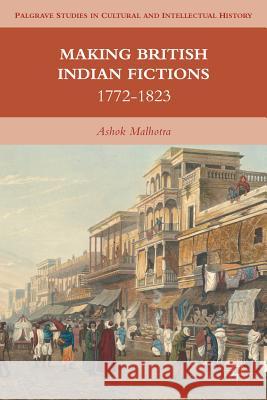Making British Indian Fictions: 1772-1823 » książka
Making British Indian Fictions: 1772-1823
ISBN-13: 9780230111264 / Angielski / Twarda / 2012 / 277 str.
This book examines fictional representations of India in novels, plays and poetry produced between the years 1772 to 1823 as historical source material. It uses literary texts as case studies to investigate how Britons residing both in the metropole and in India justified, confronted and imagined the colonial encounter during this period. The study will situate the texts in relation to the shifting colonial context and to the changing attitudes towards India within Britain in general and on the part of Britons who had experience of living in India, such as East India Company men or their wives and daughters, in particular. Moreover, it will analyse how this literature responded to the increasing influence of the subcontinent on metropolitan culture. This book, then, approaches fictional texts as case studies that illuminate trends taking place within Britain such as the growing consumption of Indian-style imported goods and the commoditisation of an Indian aesthetic within British visual culture. Whilst the book will utilise fictional portrayals to comment upon shifts in the relationship between coloniser and colonised and to discuss the cross-cultural influences between the metropole and the colonial periphery, it also outlines how literary production and print capitalism played a part in shaping depictions of the subcontinent and stereotypes of the colonial 'other'. The study will also examine how representations of the subcontinent in British art and scholarship were influenced by metropolitan literary and popular culture. At the same time it will look at how representations by metropolitan authors influenced early-nineteenth century depictions by British authors who resided in India.











